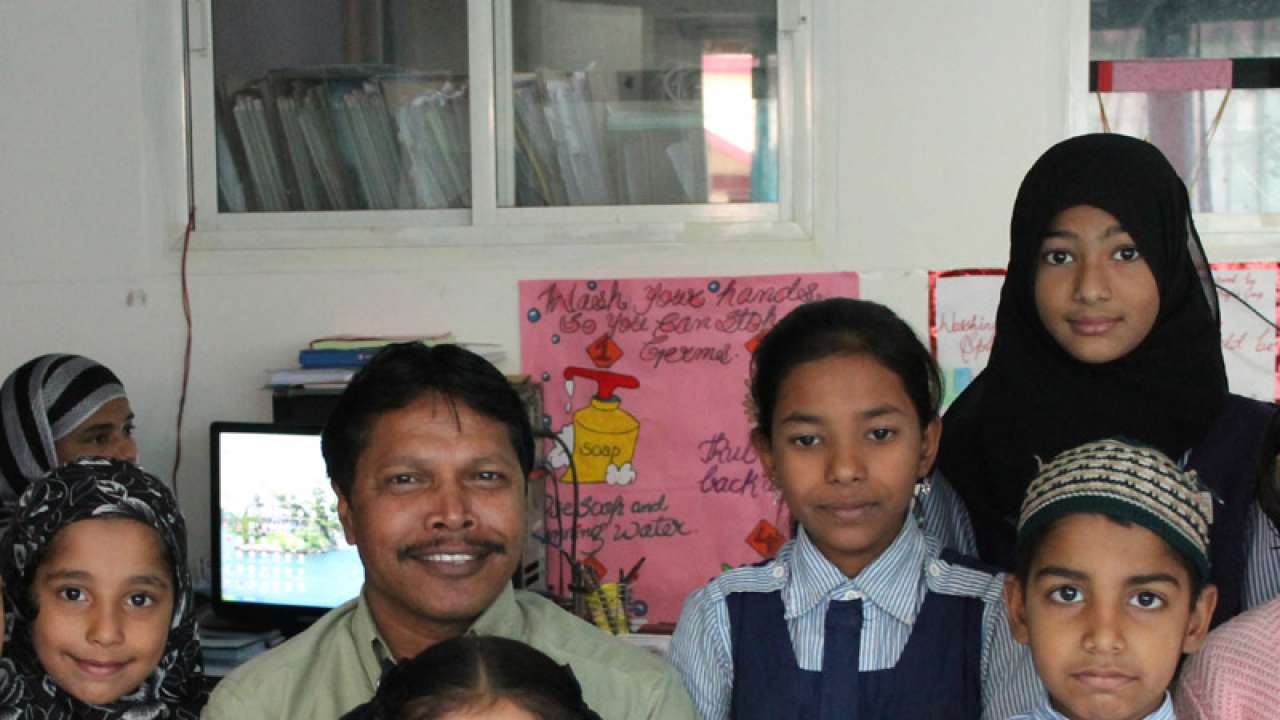
Imagine you are employed as a cook in a restaurant. One day, you get promoted to be the head of the restaurant. Now, with no training or guidance, you have to manage the cooking and wait staff, balance the budget, ensure your restaurant is within municipality guidelines, and think of new ideas to improve the restaurant, to make sure that your customers continue to receive a high-quality product. Sounds like a poor business model that sets you up for failure, right?
This is the situation many of our nation’s school leaders face, going overnight from teacher to principal, often having to manage more than fifty teachers and support staff, maintain school finances, ensure compliance with government regulation, and develop innovative strategies to help the school progress – with little training or support. And for school principals, the customer that needs a high quality product is our students, the future of our nation.
It is no secret that we need dramatic improvements in our education system, particularly for students from low-income communities. With the 2012 ASER report showing us that more than half of our fifth standard students can’t read a second standard text and PISA ranking India’s students 72nd out of 73 participating countries, the motivation to improve our primary and secondary education performance could not be more urgent. The question is, how?
Research on the importance of school leadership suggests it could be the key lever in transforming our education system. After studying headmasters in India and abroad, Stanford University Professor Nick Bloom and his colleagues write, in a recent article for the Harvard Business Review, that a one point increase on their scoring of school management practices is associated with a 10% increase in student performance. A study by New Leaders shows that the effectiveness of the school principal – just one person – accounts for 25% of the impact that schools have on student learning. Furthermore, leading education economist Eric Hanushek and his colleagues show evidence that suggests the ability of the principal matters most in schools serving the most underprivileged students.
And yet, if you are a school leader, where do you go if you want to receive hands-on support and training? There are limited venues for principals to access such development opportunities. The Akanksha Foundation, which runs fifteen low-income schools in partnership with the Mumbai and Pune municipal governments, found it extremely difficult to recruit highly trained leaders for their schools, and additionally observed the lack of opportunities for their school leaders to undergo such training. To address this need, Akanksha partnered with the Central Square Foundation, Teach For India, and the Knowledge is Power Program (KIPP) Foundation to form the India School Leadership Institute (ISLI), one of the first organisations in the country dedicated to training school leaders.
Currently, in our first year, our team at ISLI has worked to develop a curriculum for leadership training that adapts the best international practices to the Indian context. We have drawn heavily from the strategies of many organisations, including the principal training program used by the KIPP Foundation, which runs a network of 125 government-supported, high-achieving schools in low-income communities across the United States. Our curriculum is a mix of academic and experiential learning. It provides school leaders with exposure to new ideas as well as intensive coaching by a seasoned educator at their school sites to implement these ideas in their unique context.
Our first cohort of school leaders has completed more than half of their year-long fellowship with ISLI. This group of six headmasters and school owners from Delhi, Pune, Mumbai, and Hyderabad oversee twenty schools in high-poverty areas. They were chosen from a field of more than 100 applicants as those most prepared to undergo rigorous leadership training. Our current cohort has undergone intense training that has included many late nights creating their school development plans with their coach, days away from their schools to shadow principals of others schools such as the Riverside School in Ahmedabad, and participation in workshops facilitated by leaders in the fields of education and management.
These leaders joined ISLI to develop their skills so that they can transform their schools into places where low-income students achieve exemplary learning outcomes and character values. In the process, these leaders and their schools will serve as models for others to achieve the same goals for students across the country. Though we will be tracking progress on student performance over the next three years in these schools, the results will not be known for some time. However, early indicators show that these leaders are making dramatic progress in their schools.
We are just getting started. We want to develop world-class programmes that will be used to train school leaders across the country. So ultimately, schools looking to effectively serve our nation’s students can be sure that their leader is not under-prepared or set up for failure but instead has the skills and support required to raise the achievement of all students.
Sameer Sampat is the Executive Director of India School Leadership Institute (ISLI). The deadline to join ISLI’s second cohort as an existing or aspiring school leader is January 17, 2014. See www.indiaschoolleaders.org/apply to apply or to receive further information.